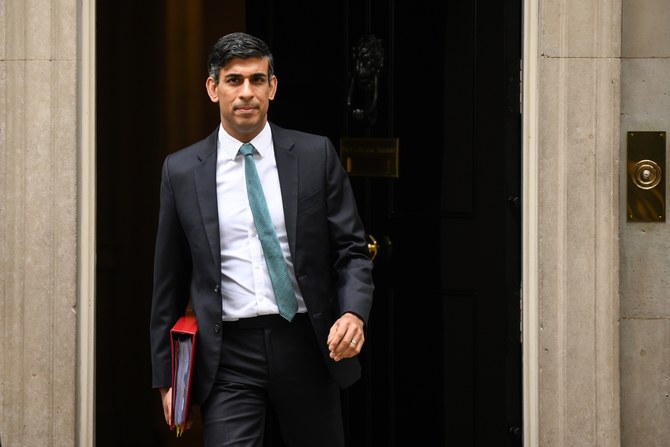Chris Doyle
Outrage. Scandal. The president of the Cambridge Union resigned last month having been accused of “stuffing ballots” to get his mate elected as his successor. If standards at this world-leading, historic academic institution are collapsing, what does it say about the rest of Britain?
The question facing those who care for the country’s political system is whether it can stand up to the onslaught against standards in public life and prevent a slide into illiberalism and reactionary populism. How resilient are British institutions? It was the Victorians who introduced ideals such as accountability and integrity into government, and so changed the way that the country was governed. They would not be impressed by the Britain of 2023. When standards at the heart of Westminster have all but evaporated, why should we imagine that other establishment bulwarks would also not be infected? Nothing is sacred anymore in politics, so stuffing ballot boxes for political gain seems just the next logical step in the race to the bottom.
For any political system to function, a set of shared assumptions and accepted truths are vital. This is why standards at the heart of political systems matter. It is why the investigation into the mob attack in Washington on Jan. 6, 2021, matters. It is why public service matters. It is why accountability matters. It is why the rule of law matters. In the UK, the Boris Johnson era appears to be coming to an end. The former prime minister never seemed to be shackled by any necessity to veer toward the truth. He was not the first PM to have dabbled in falsehoods, but he took it to a new, all-consuming level. In doing so, he compromised all the politicians around him and made them complicit in the lies. The Supreme Court determined that Johnson unlawfully advised the late Queen Elizabeth to prorogue Parliament, all to overcome yet another Brexit-related crisis. He stands accused of lying to the monarch. Partygate drags on. This is the scandal that bedeviled his last months as prime minister, although it was not the ultimate reason he was ejected from Downing Street. That was another scandal. The House of Commons Privileges Committee last month found that Johnson deliberately misled Parliament or, as most would see it, lied about the lockdown parties in Downing Street. It stated: “Our democracy depends on MPs being able to trust that what ministers say in the House of Commons is the truth.” Its report into Johnson’s conduct forced him into a preemptive resignation as an MP. He did not go silently into the night.
But what about the other politicians who savaged the Privileges Committee? They were accused of intimidating committee members in a coordinated campaign. Many of the eight likened the committee to a “kangaroo court.” One MP accused it of being a “parliamentary witch hunt which would put a banana republic to shame.” Cronyism is another hallmark of Johnson’s world. Having given a peerage to the son of a KGB officer, defying the warnings of the security services, he was then reported to be considering including his father Stanley in his resignation honors list. The final list included some of those found culpable for the rule-breaking parties, who were rewarded for their outright failure. In fairness, Johnson is not alone in doing this, as friends of prime ministers and party donors have been rewarded in the past. The whole honors system has been shamefully devalued. Freedom of speech is also under relentless attack. The government has just introduced a bill that aims to ban public bodies from disinvesting from countries on moral and ethical grounds.
The populist brigades have also targeted the judiciary, crudely portraying it as an obstacle to the popular will as opposed to a vital guardian of the rules-based system. Once again, this is not unique to Britain. Populist regimes always go after judges and the courts, as we have seen in the US, Poland, Hungary and, right now, Israel. After one judicial review, Britain’s best-selling newspaper labeled a panel of High Court judges as “enemies of the people.” Then there are the never-ending culture wars, deliberately designed to antagonize and polarize rather than unite and progress. Home Secretary Suella Braverman is an exemplar of this, not least when she proclaimed that many of those crossing the English Channel in small boats behaved in ways that were “at odds with British values.” Racism and prejudice, including Islamophobia, have been weaponized. The whole debate on controlling immigration has descended into the coarse language of demonizing them as hordes of invaders, a threat to the economy and the British way of life. The extreme right has stoked this up. Bashing Muslims remains in vogue, especially when it comes to immigrants and refugees, with blond Ukrainians welcome but Afghans and Syrians less so.
The nadir of the British immigration saga is the Rwanda proposal – a plan to deport asylum seekers 4,000 miles away to East Africa. Last week, the government’s proposals were deemed to be unlawful at the Court of Appeal. Rwanda was adjudged to not be a safe destination, which came as no shock to those aware of its record of disappearing opponents and limiting free speech. Morality aside, the government’s own estimates say the scheme will cost taxpayers a painful £169,000 ($214,000) per person. However, a fightback is being mounted. The cross-party Privileges Committee struck a huge blow for democracy, casting aside party disputes for the higher goal. Prime Minister Rishi Sunak has pledged to bring back standards into public life. Voters are beginning to make it known how fed up they are with the epidemic of scandal and corruption. It may be a long and difficult road to reestablish the norms and conventions that are the glue of any functioning democracy, but it is one that needs traveling. Much more needs to be done to cauterize the wounds of the Johnson era, not least the complete and utter repudiation of racist politics. Yet Britain is stronger than some of its critics suggest. It is not a senescent system fit only for the scrapheap. Much of what has happened in Britain is an echo of the political journey that is taking place across the Atlantic. Populism and the degrading of public standards are spreading. Democracy and the rule of law require permanent attention and care. They are fragile. So, when one sees the parliamentary authorities in Westminster hitting back with aplomb, it also ricochets across the European continent and seeds new possibilities for upholding democratic norms.







